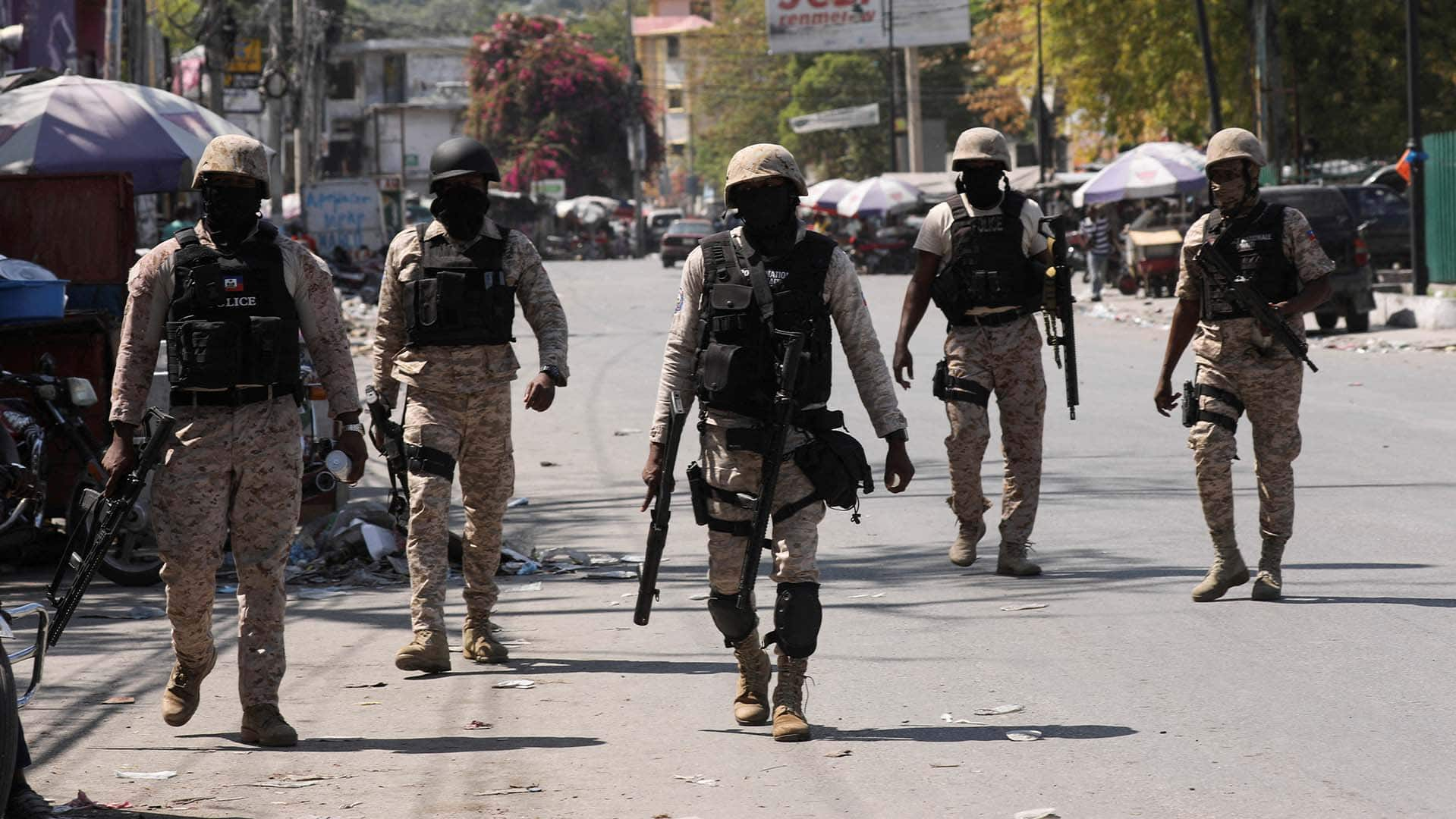‘No safe place’ in Haiti, says Toronto father as Haitian Canadians watch violence engulf country
Dieufaite Charles says he’s been waking up every morning recently fearing for the safety of his children in Haiti.
The Toronto musician says his 13-year-old daughter and 18-year-old son are stuck in Gonaïves, a city in the western part of the Caribbean country, where they regularly hear gunshots. His other 18-year-old son is in the capital, Port-Au-Prince.
“It is devastating. You can imagine, as a father, you have your offspring out there, not secure,” Charles said in an interview with CBC’s Metro Morning. “We don’t know what’s going on, what’s going to happen.”
Charles said people in Haiti are living in a “prison” after armed gangs took control of much of the capital, with violence spreading to other parts of the country as well. He said his kids aren’t going to school, and only leave the house to go to the supermarket.
“You cannot go from one place to another place without … finding the gang[s], the gangsters or people that just kidnap them and then ransom them and kill them,” said Charles. “There’s no safe place.”
Nearly 3,000 Canadians are trapped in Haiti because spiraling violence has closed both the port and airport and the Canadian government has no options to evacuate them.
Charles is one of many Haitian Torontonians worried about their family members in Haiti as a violent power struggle paralyzes the Caribbean country, closing schools, businesses and the main airport in Port-au-Prince. Gangs have attacked the airport, government buildings and a prison, helping thousands of inmates to escape.
Scores of people have been killed and more than 15,000 are homeless. Food and water are dwindling as vendors who sell to impoverished Haitians run out of goods. The main port in Port-au-Prince remains closed, stranding dozens of containers with critical supplies.
On Monday, the country’s prime minister, Ariel Henry, said he would resign once a transition council and temporary replacement have been appointed.
The situation is so serious that the federal government is advising Canadians in Haiti to shelter in place, stock up on essential goods and limit their movements, Global Affairs Canada said in a statement on its website Monday night.
“The Government of Canada is not planning assisted departures or repatriation flights for Canadians in Haiti at this time. However, we continue to monitor and assess the security situation very closely, and we will work in coordination with our allies as the situation develops,” the statement said.
Sisters fear for cousin, aunt
Djiny Saint Jean said her cousin, a single mother, has been sending WhatsApp videos showing the chaos unfolding outside.
Her cousin is scared to leave the house even to get food for her baby, she said. Saint Jean said she wants to send money to help, but her cousin can’t go outside to collect it.
“They cannot leave their home because they’re shooting everywhere,” Saint Jean said. “We’re lucky we’re here in Canada. We can get up every day, go to the grocery store, go to school, go to work. But for them it’s basically life or death.”
Jasmenta Saint Jean, Djiny’s sister, said their aunt is in Port-au-Prince with her six children. The family’s been stuck there for two months, unable to return to their home city of Cap-Haïtien, on the northern coast, due to the security situation.
“The kids are hearing all the gunshots that are going on right now and they don’t have food,” she said. “They pretty much are there at the mercy of God to help them and see if that thing will ever come to an end.”
Through their nonprofit, Haitians of Toronto, the women say they hope to start raising funds so they can send aid to the country.
Charles and the Saint Jeans all called on the Canadian government to take steps to help Haitians, including making it easier for them to bring their families in Canada.
“I hope that the Canadian government and with the U.S. government they can find a way to create a humanitarian channel,” Charles said. “So some people can get out of the country and maybe come to Canada or go to U.S.”
The federal government announced in October it would open the door to 11,000 people from Colombia, Venezuela and Haiti who have immediate family members living in Canada, either as citizens or permanent residents.
But the family reunification program reached capacity fewer than two months after its launch.
Djiny and Jasmenta Saint Jean said their cousin and aunt were in the process of applying when the program was capped.
“The way that it closed, it left a lot of people without the opportunity to even get their application reviewed,” Djiny Saint Jean said. “They spent a lot of time, resources to get those paperwork just for them to say, ‘Sorry, we reached the maximum.'”
Canada’s embassy in Port-au-Prince was still operating as Caribbean leaders met Monday with officials from the U.S., Canada and other countries in Kingston, Jamaica to discuss plans to restore order to the country.
In a statement posted to its website Monday night, Global Affairs Canada said the embassy “is closed temporarily to the public” but “consular services will be provided remotely.”
Prime Minister Justin Trudeau attended the meeting virtually and also held a meeting with his incident response group to discuss the situation in Haiti. Canada’s UN Ambassador Bob Rae attended the meetings in person.
View original article here Source










